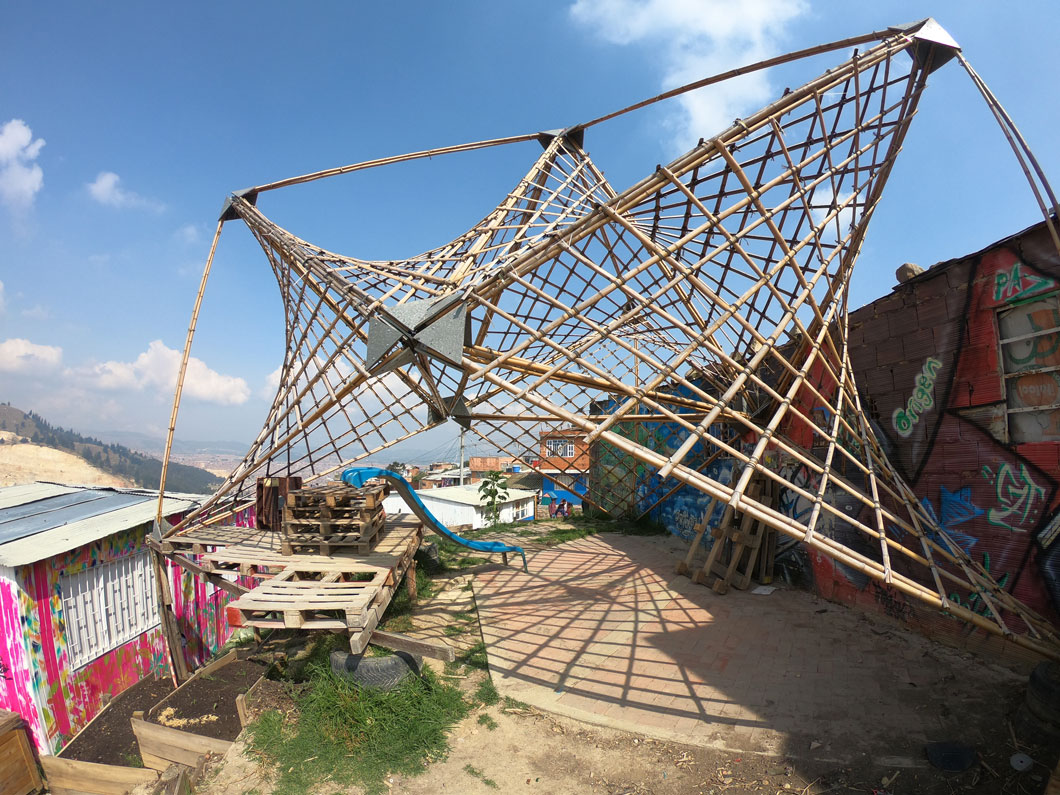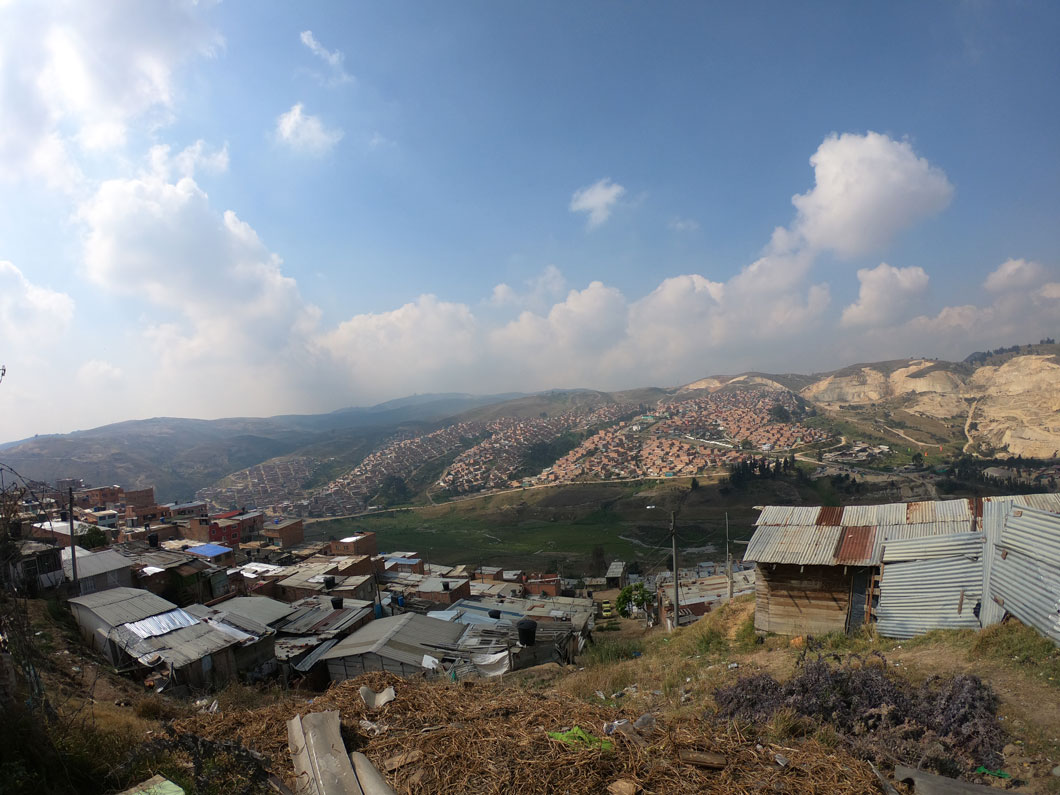 Constructing peace through community development in bio-construction workshops.
Constructing peace through community development in bio-construction workshops.
One of the challenges facing Colombia, and indeed any country that has been at war for an extended period of time, is the process of rebuilding communities as they move towards constructing lasting peace.
Community development undoubtedly goes hand-in-hand with post-conflict solutions, and while the government and international aid organisations do what they can to reach this end, a number of non-profit organisations have also stepped in with social upliftment programmes that work at a more local level.
One such example is the Proyecto Escape outreach programme in the Soacha municipality to the southwest of Bogotá.
Created by residents
Proyecto Escape was created by residents of the Altos del Pino section of Cazucá, the largest settlement of its type in Colombia. This vulnerable area is inhabited by a high number of internally displaced people, many of whom have fled extreme violence and other dire conditions in other parts of the country.
Through their outreach programmes, organisers of the initiative say their aim is to promote peace and improve the lives of children, young people and mothers by enhancing their skills and competencies through workshops and training programmes.
The creators of the project say that by working through a different perspective, they seek to positively impact people using cultural tools such as art, environmental awareness, academic development and sports.
Eco friendly
In addition to their ongoing activities, the group also hosts occasional workshops, like the one taking place May 17 to 20, during which participants will learn about bioconstruction using traditional and sustainable eco-friendly methods.
“The workshops are open to anyone who wants to learn and participate,” says Luis Hernandez, who will be teaching bio-construction at the event.
Hernandez, a civil engineer by trade who changed his career path to dedicate his time to teaching about food security and sustainability, runs workshops and training seminars through the non-profit organisation Tierralab based in Medellín.
“We have to protect the earth,” he says. “Climate change is a reality, and if we don’t do something to stop it now, we will be left with nothing.”
Tierralab encourages people to become more self-sufficient by teaching them to grow their own food. This, according to Hernandez, is important not only for the environment, but perhaps even more so for the economic circumstances of many in Colombia, especially those affected by the war.
Related: Niñas sin miedo foundation, empowering girls through cycling
“This is not only something that can be done in the countryside,” he says. “People living in the cities can also grow their own food if they have a small garden, or even on the balcony if they live in a built-up area.”
Natural construction
Asked to elaborate on bio-construction, he explains that it’s all about working with naturally occurring materials that are easy to get hold of, and using the same techniques that our ancestors used, and which many indigenous people still employ today.
“There are a variety of techniques, but it’s basically construction using mud and locally sourced wood, working in harmony with the land. It’s also a way of encouraging people to work together,” he adds.
The Cazucá workshop was organised by Proyecto Escape, Universidad Piloto de Colombia and Urbz Colombia with the support of Arquitectura del Oximoron, Semillas Costa Rica, Observatorio Urbano de La Salle and Tierralab.
The goal, say the organisers, is to improve the living area used by over 400 children. At the end of the four-day training programme, the community will benefit from new public toilets and showers as well as a communal laundry area and recreational spaces, which participants will build.
For more information either to participate or make a donation, check out






